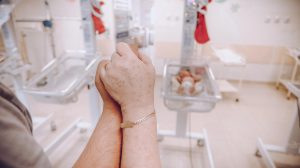2025-09-22 / News

© Pexels
Providing the best possible start in life for all newborns is a global challenge, particularly for those requiring intensive hospital care. Traditionally, neonatal care has focused more on medical tasks than on the essential role of parents. To address this gap, a programme called Close Collaboration with Parents was developed in Finland as a staff training initiative to strengthen family-centred care in neonatal intensive care units (NICUs). Involving 26 units, the programme has shown promising outcomes for infants, families, and healthcare staff alike. Most notably, it helped create a care culture where parents are true partners in their infant’s care. These changes have led to improved infant growth, shorter hospital stays, more parent-infant interaction, and a reduction in maternal depressive symptoms.
Newborns in intensive care need more than medical treatment – they need the emotional and physical closeness of their parents. However, many hospitals have traditionally limited parental involvement. This lack of inclusion can increase stress for parents and disrupt bonding with their infant. The Close Collaboration with Parents programme addresses this issue by guiding healthcare teams to adopt a more relationship-based approach, promoting open communication and shared caregiving with parents.
To shift care culture, the programme trains all NICU staff in four key phases: observing and understanding infant behaviour, collaborating with parents on care decisions, listening to each family’s unique story, and involving parents in all aspects of care, including discharge planning. Staff practice these skills at the bedside with support from trained mentors, helping them apply what they learn in real-life settings.
After completing the training, hospitals observed significant improvements. Parents spent more time in the unit and increased skin-to-skin contact with their infants. Fathers especially reported greater involvement in shared decision-making. Staff gained confidence in supporting parents, providing emotional care, and listening actively. Nurses described a shift from being primary caregivers to being facilitators who empower parents to take an active role.
In addition to enhanced relationships, measurable medical benefits were observed. Preterm infants in trained units had better weight gain and shorter hospital stays. A long-term follow-up showed that mothers reported fewer depressive symptoms even two years after discharge. These results show that investing in family-centred care has a positive impact on both emotional well-being and clinical outcomes.
The programme ensures that all families – regardless of background or medical condition – can participate fully in their child’s care. This inclusiveness is key to providing equitable support across neonatal units. By involving entire care teams and tailoring implementation to each hospital’s needs, the program fosters sustainable changes that benefit every infant and family.
With its emphasis on partnership, empathy, and shared responsibility, the Close Collaboration with Parents programme offers a powerful model for units worldwide. Its success demonstrates that nurturing relationships between staff and families is not just supportive, it is essential.
Paper available at: Close Collaboration with Parents—Implementation and effectiveness – Ahlqvist‐Björkroth – 2025 – Acta Paediatrica – Wiley Online Library
Full list of authors: Ahlqvist-Björkroth, S.; Axelin, A.; Lehtonen, L.
DOI: https://doi.org/10.1111/apa.17210
You are currently viewing a placeholder content from Facebook. To access the actual content, click the button below. Please note that doing so will share data with third-party providers.
More InformationYou are currently viewing a placeholder content from Instagram. To access the actual content, click the button below. Please note that doing so will share data with third-party providers.
More InformationYou are currently viewing a placeholder content from X. To access the actual content, click the button below. Please note that doing so will share data with third-party providers.
More Information